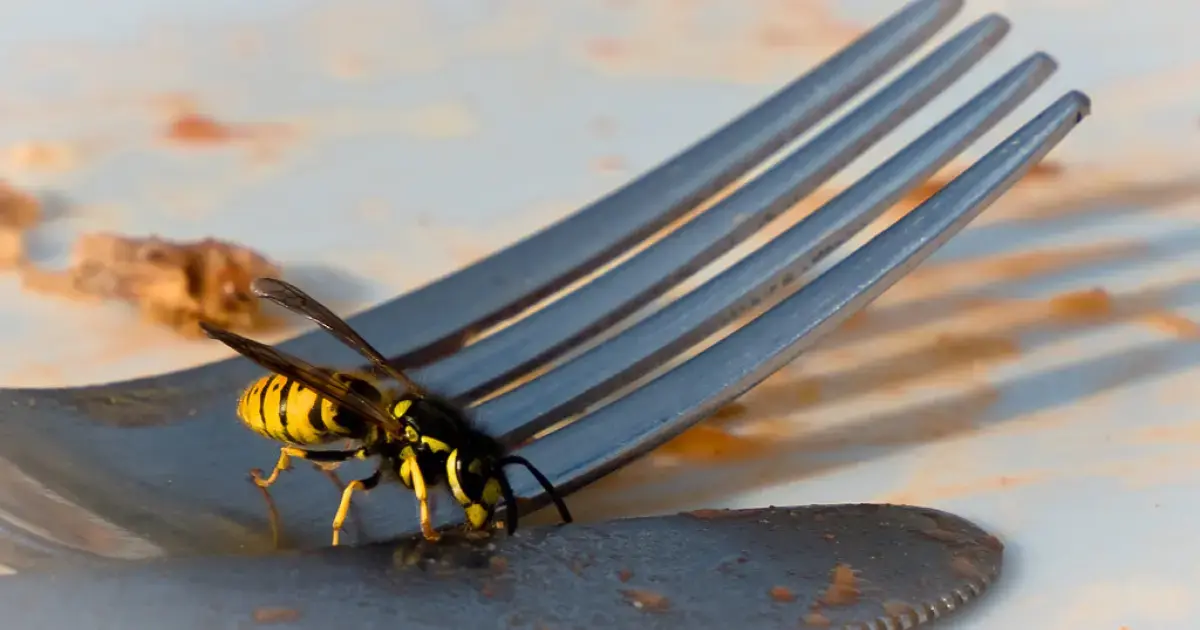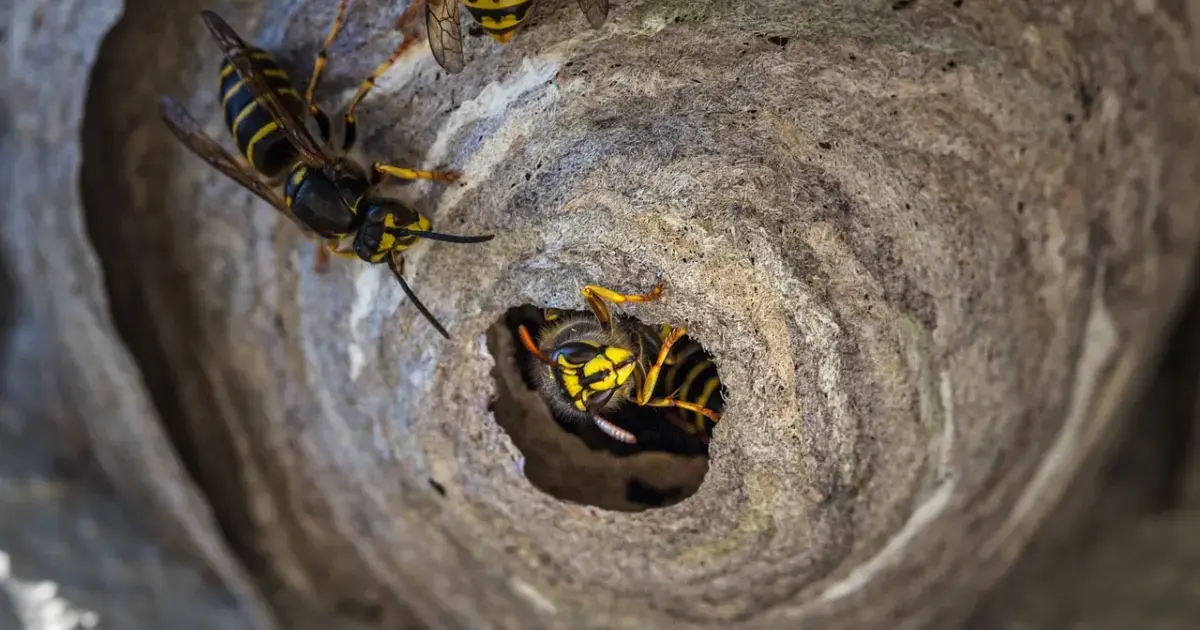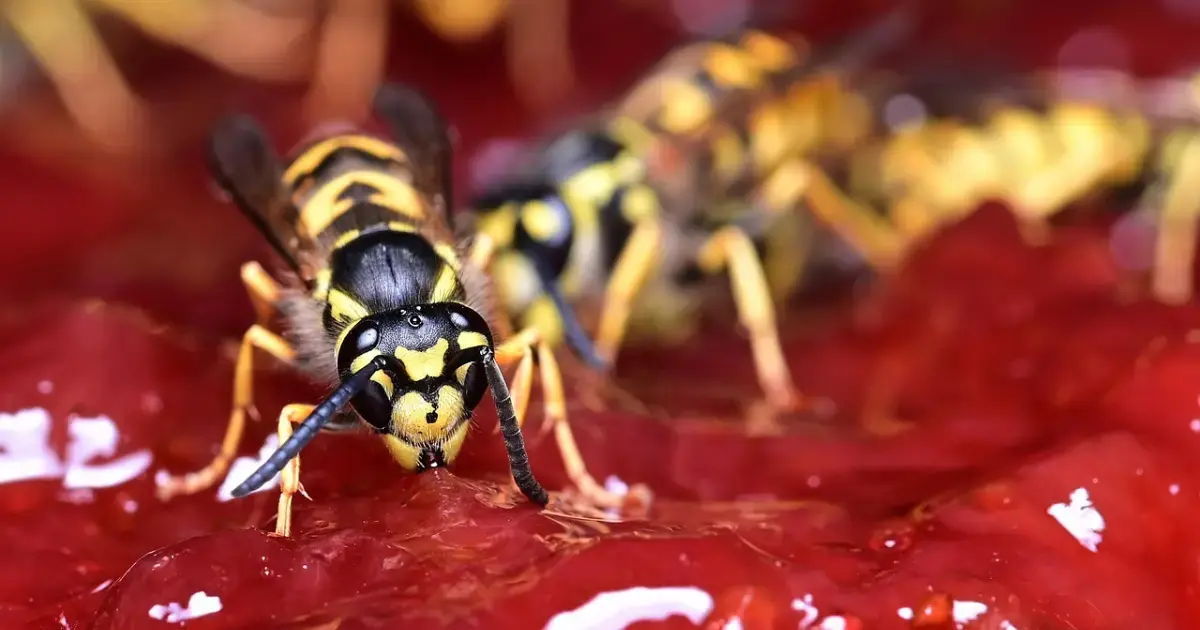 After a warm summer, we see a real “explosion” in the wasp population. And it’s that poses the greatest danger: wasp queens stop laying eggs, their nests enter the final phase of their life cycle, and worker wasps find themselves without food. As a result, they begin to aggressively search for easily accessible, carbohydrate-rich that humans consume, becoming more aggressive, reports Daily Mail.
After a warm summer, we see a real “explosion” in the wasp population. And it’s that poses the greatest danger: wasp queens stop laying eggs, their nests enter the final phase of their life cycle, and worker wasps find themselves without food. As a result, they begin to aggressively search for easily accessible, carbohydrate-rich that humans consume, becoming more aggressive, reports Daily Mail.
A Simple Trick: Fake Nest
Pest expert James Copley suggests that the easiest way to deter wasps from your garden is to “fool” them. These insects are very good at distinguishing their territory from others and will never build a nest near another. Simply crumple a brown paper bag and hang it from a tree or near your patio. From a distance, it resembles a wasp nest, and the insects will avoid that area.

Food Bait
Another trick is to create a special tasty bait for the wasps. Place a dish of jam or overripe fruits at the far end of your garden. This way, the insects will be drawn to the easy pickings instead of your dining table. This is especially useful during or outdoor dinners.

Natural Repellents
Instead of using chemicals that harm both and the environment, you can use natural remedies:
- a spray made of water and white vinegar;
- fresh cucumber peels – wasps can’t stand the smell;
- small bowls of used coffee grounds, which mask the scent of food.
These methods are safe and effective.
Why You Shouldn’t Destroy Wasps
Despite their painful stings, wasps are an important part of the garden ecosystem: they regulate the population of other , serve as a food source for many animals, and help pollinate plants. Therefore, experts recommend not exterminating them with toxic substances, but rather deterring or distracting them.

